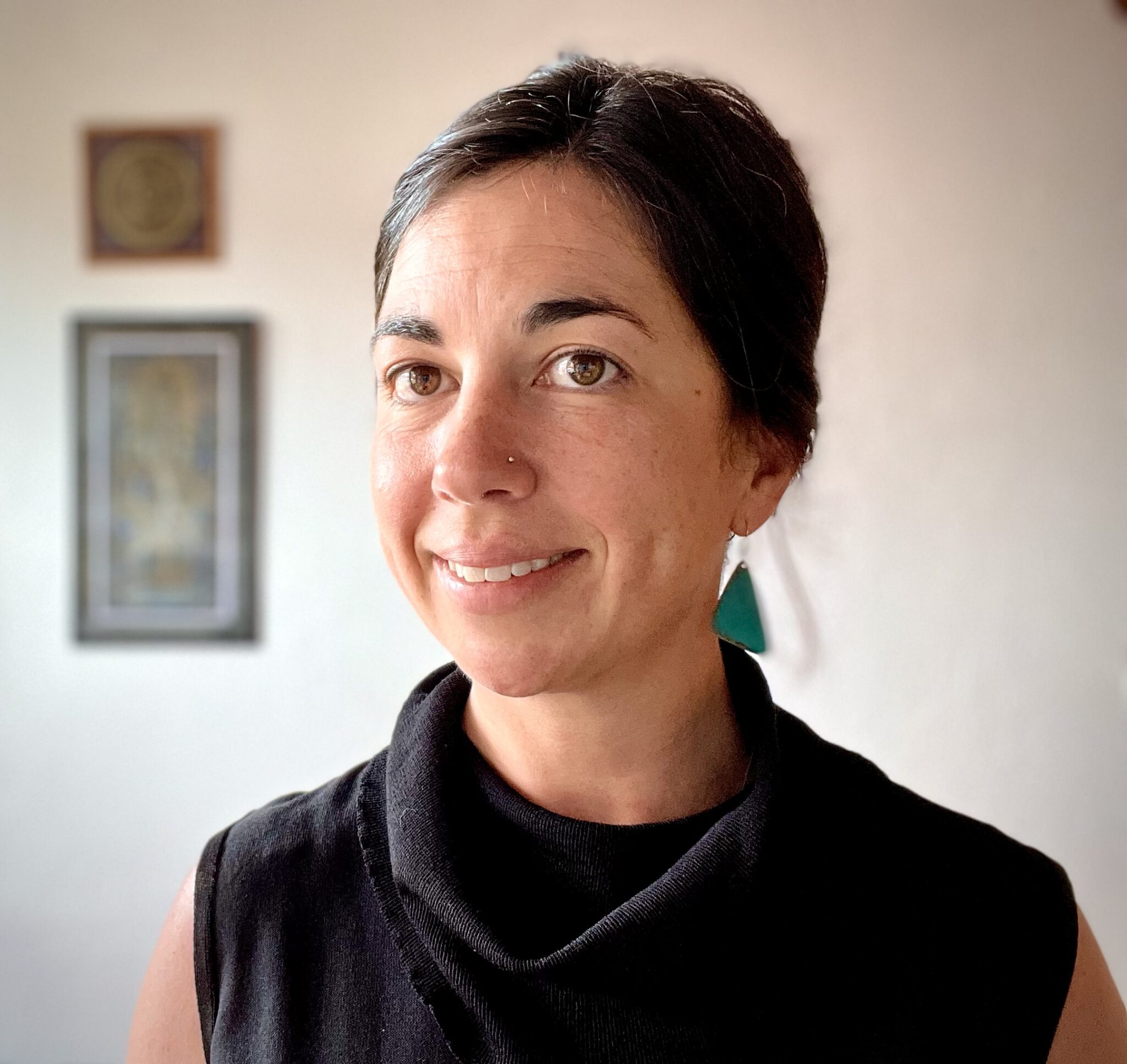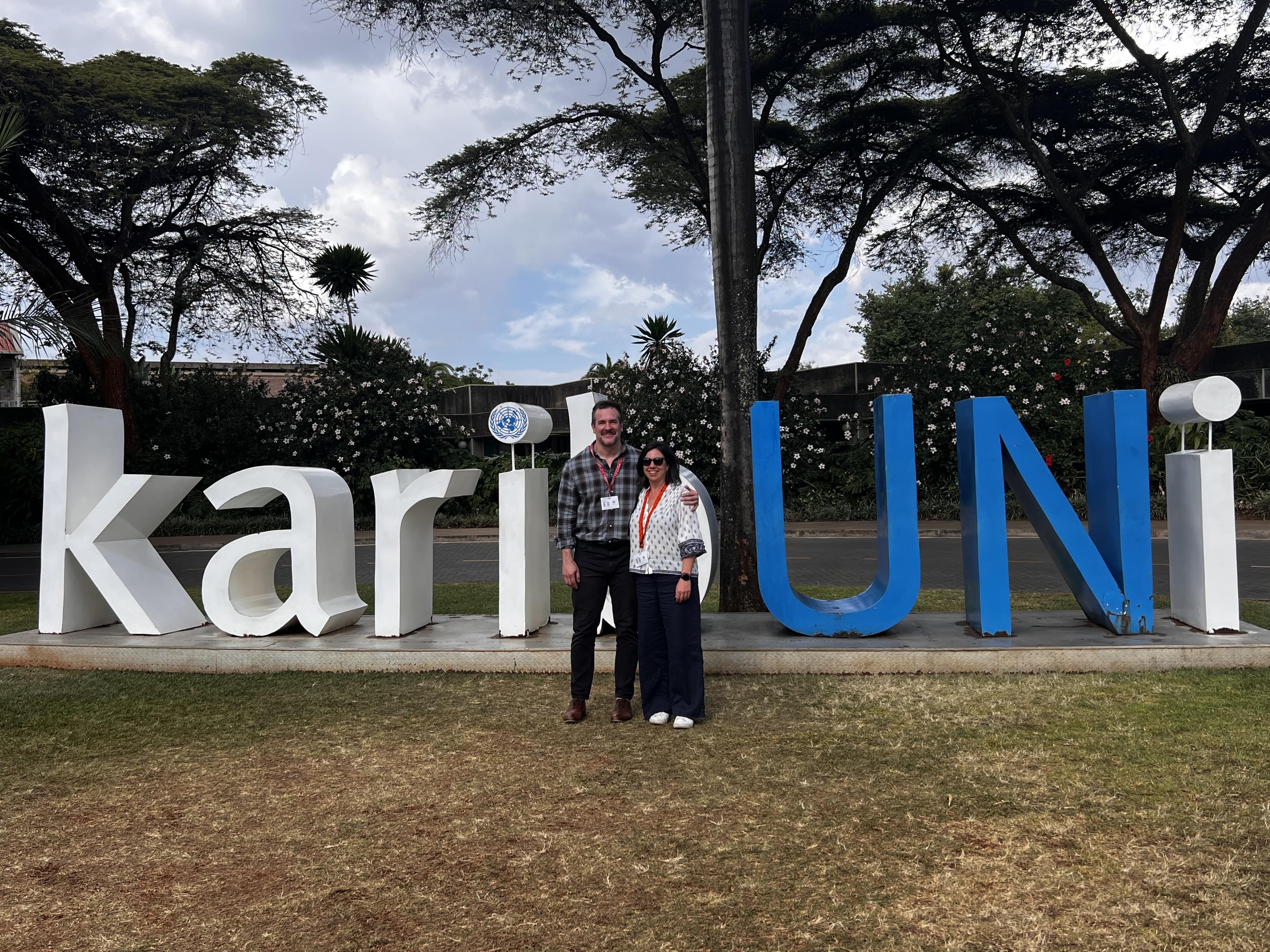What Would a Fair and Inclusive SRM Non-Use Process Look Like?

The 20th African Ministerial Conference on the Environment (AMCEN-20) reaffirmed its call for a non-use agreement on solar geoengineering (also referred to as solar radiation modification or SRM), urging African states to promote this position across multilateral arenas and work toward a resolution at the UN General Assembly. This was not a new stance: two years earlier, the Ministers of AMCEN-19 had called for a global governance mechanism for the non-use of SRM.
While this reaffirmation signals a coordinated approach by a number of African governments within the AMCEN context, we note that the voices of civil society were largely absent from this ministerial process. National perspectives, international negotiations, and opportunities for broader engagement will continue to evolve—and we see here an opportunity to expand participation to help shape fair and legitimate global governance. We also believe this development represents an important step in the ongoing evolution of global SRM governance: a precautionary step grounded in environmental justice, sovereignty, and the protection of future generations.
A Call for Precaution in SRM Governance
AMCEN’s position echoes broader international activity. In December 2023, the European Parliament issued a call for global action on solar geoengineering, including a non-use agreement, citing concerns “about the global risks and adverse impacts of SRM on the environment and climatic and geopolitical stability.” The Parliament urged the European Commission and EU Member States “to initiate a non-use agreement at international level.” A similar call has also been voiced by the South Pacific Island of Vanuatu, emphasizing the risks of unilateral deployment and the dangers of SRM becoming a tool of climate colonialism.
The calls for a non-use agreement are deeply rooted in the precautionary principle, which has long guided international environmental law and policy. In 2010, a non-binding decision under the Convention on Biological Diversity (CBD) urged Parties to ensure that no outdoor geoengineering activities take place until there is an adequate scientific basis, appropriate risk assessments, and effective governance frameworks—consistent with the precautionary approach.
These calls reflect growing concern over the absence of a robust, transparent global framework to govern SRM research and potential use. Stratospheric Aerosol Injection (SAI), one of the most researched SRM approaches, poses risks that are not fully understood—scientifically, politically, or ethically. Its potential impacts on weather patterns, regional climates, biodiversity, and transboundary equity raise fundamental questions about who decides, who benefits, and who bears the costs. And for many climate-vulnerable countries, the governance of SRM risks replicating historical geopolitical power imbalances that are deeply unjust and that are all too familiar to them.
Yet the current debate is not only about risks; considering why SRM is under discussion at all is crucial context. As climate impacts accelerate and mitigation and adaptation fall short, some scientists and policymakers are exploring SRM as a potential means to reduce near-term warming. Research suggests that, under certain scenarios, techniques like SAI or marine cloud brightening (MCB) could help lower global or regional temperatures or limit harm.
These potential benefits and risks, however, remain deeply uncertain—and can look different across different geographies. This complexity reinforces the need for inclusive deliberation that does not rush to endorse or reject, but instead enables informed, participatory discussions, underscoring why discussions around SRM must be grounded in robust governance frameworks.
Challenges in the Current Landscape
The growing calls for a non-use agreement must be understood in the context of how solar geoengineering has emerged as a governance issue—marked by uneven attention, patchy institutional engagement, and limited public dialogue. Over the past decade, scientific research and policy conversations have often developed in parallel to, rather than in partnership with, the communities and regions most affected by climate change. This has created a mismatch between the pace of scientific exploration and the preparedness of the public and political institutions tasked with evaluating it. For example, high-profile controversies such as Make Sunsets’ unauthorized balloon launches in Mexico, the debates surrounding the SCoPEx experiment in Sweden, or the more recent University of Washington’s MCB experiment in Alameda highlighted how early SRM-related activity can provoke public concern when it appears to bypass societal deliberation.
At the same time, opposition advocacy efforts—especially from within the Global North—have advanced strong normative arguments against SRM, often grounded in environmental justice, climate equity, and anti-colonial principles. While these positions speak to real historical injustices and ethical concerns, they have not always been developed through broad, participatory dialogue, particularly with stakeholders in the Global South. The result is a governance landscape that remains fragmented and reactive, with limited space for careful, inclusive, and regionally grounded engagement.
The principle of deliberative inclusion informs how we view emerging proposals for global governance. A 2022 academic proposal for a non-use agreement, put forward by Biermann et al., has gained visibility and support among some advocates and funders. While the proposal raises legitimate concerns about the risks of unilateral deployment, its current framing has limitations that warrant careful attention. For starters, the proposal—developed primarily within Global North institutions—risks reinforcing the very power imbalances it seeks to counteract. Moreover, while often referenced in advocacy spaces, it does not represent a global consensus. Its uptake can sometimes give the impression of widespread agreement where, in fact, significant differences remain across regions, communities, and policy actors.
There is also a tendency in international advocacy for certain frameworks to gain rapid traction and be treated as ready-made solutions—potentially narrowing the space for alternative ideas, particularly those grounded in diverse regional contexts. When advocacy tools are fast-tracked without the necessary process of consensus-building, they can inadvertently preempt the kind of political negotiation and shared ownership required to make global governance effective and legitimate.
DSG believes any process around a non-use agreement must prioritize inclusive, deliberative governance—ensuring all countries have genuine opportunities to shape the agenda and contribute from the very outset. Without meaningful participation from scholars, civil society, and policymakers from the Global South, key perspectives on governance complexities risk being sidelined.
This call for fairness in process becomes even more urgent given today’s complex geopolitical realities. Global climate cooperation has suffered setbacks—from fragmented loss and damage finance, to deepening North–South distrust. In this environment, calls for a non-use agreement reflect a desire for protection: of people, of ecosystems, of democratic processes.
Toward Inclusive and Participatory Governance
Against this backdrop, calls for a non-use agreement represent a critical opportunity: to open space for the meaningful and participatory shaping of what such an agreement could look like—one that honors the legitimate concerns raised by African, European, and South Pacific leaders. If the global community is to take up a non-use agreement seriously—and responsibly—it must do so through inclusive processes that avoid replicating the very exclusions and inequities that such an agreement seeks to confront. Most importantly, it must ensure that countries most affected by climate change are not just consulted, but empowered to shape the terms, scope, and governance mechanisms of any future agreement.
Clarifying our position further may be useful here: DSG does not view consideration of a non-use agreement as inherently problematic nor as a one-size-fits-all solution. Our concern lies with the process of how such an agreement is conceived and constructed. A flat ban imposed through opaque processes risks closing off scientific inquiry and sidelining the very communities it purports to protect. What matters most is how decisions are made, by whom, and whether those most affected are genuinely empowered to shape the outcome. A transparent, participatory path forward could ensure that any eventual agreement—whether it restricts, regulates, or reconsiders SRM—is rooted in legitimacy and justice.
DSG is a Global North-based organization supported by philanthropic funding. We recognize that we operate within the same ecosystem that has been inherently unjust to the Global South, and we acknowledge this position and its tensions. But we are also deliberate in our approach. Our mission is rooted in supporting inclusive and transparent deliberation, especially in the Global South, where communities are not just underrepresented in climate decision-making, but are also the most vulnerable to both the risks of inaction and the risks of novel interventions. We do not advocate for or against SRM, but instead work to build the capacities and networks needed for others—especially those on the front lines of climate injustice—to engage on their own terms.
At DSG, this slow work is at the core of our mission. Supporting global governance on SRM must begin with humility: recognizing that legitimacy can’t be fast-tracked, and that inclusive, participatory engagement must come before—not after—technical and political decisions are made. It also means acknowledging that civil society voices, especially in the Global South, deserve long-term investment, not just consultation. People must be empowered to ask hard questions, explore divergent perspectives, and decide for themselves what role—if any—SRM should play in a just climate future.
Join Our Community
Stay informed about the latest developments in solar geoengineering and how you can make a difference. Subscribe to our newsletter for insights, updates, and opportunities to get involved.




.png)




.jpg)
.jpg)
.jpg)